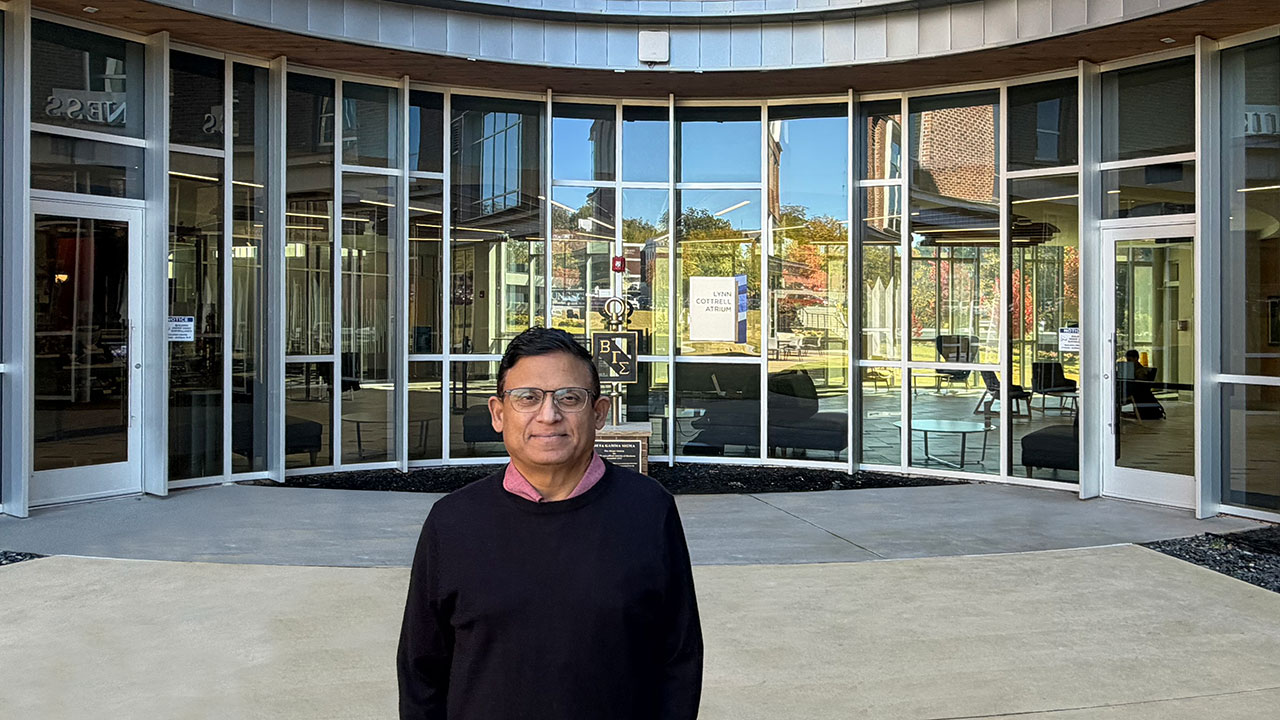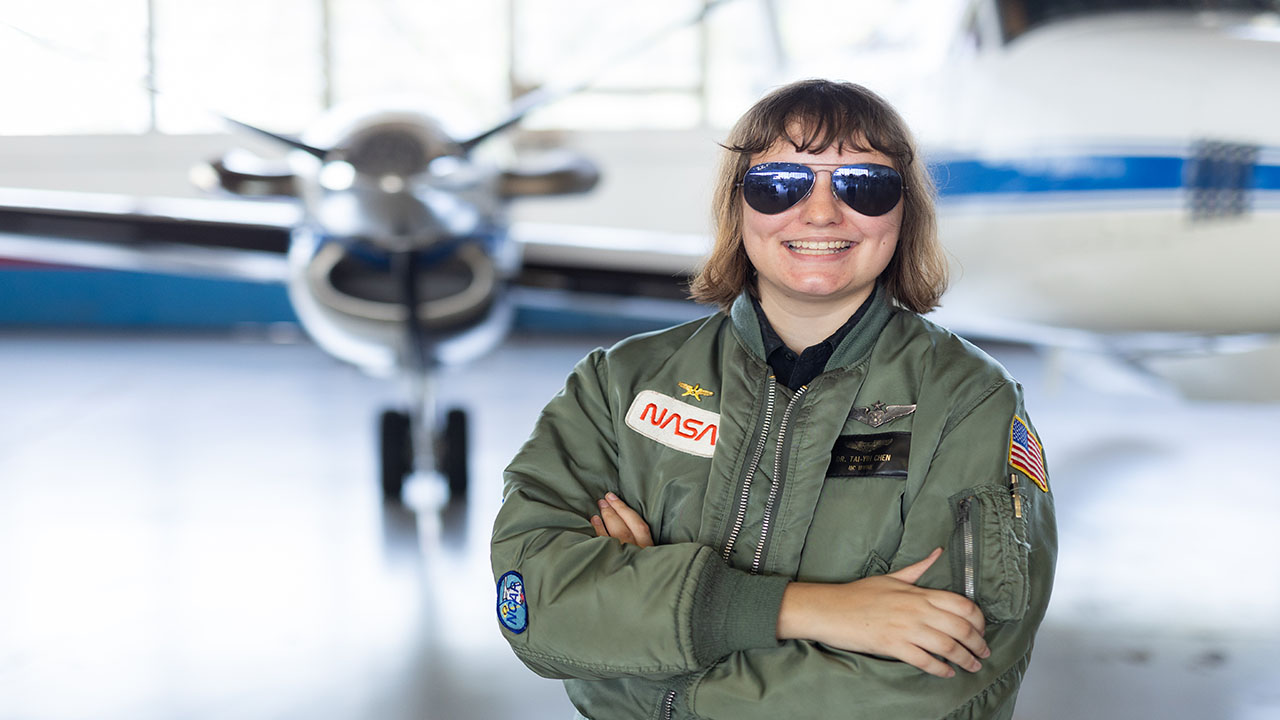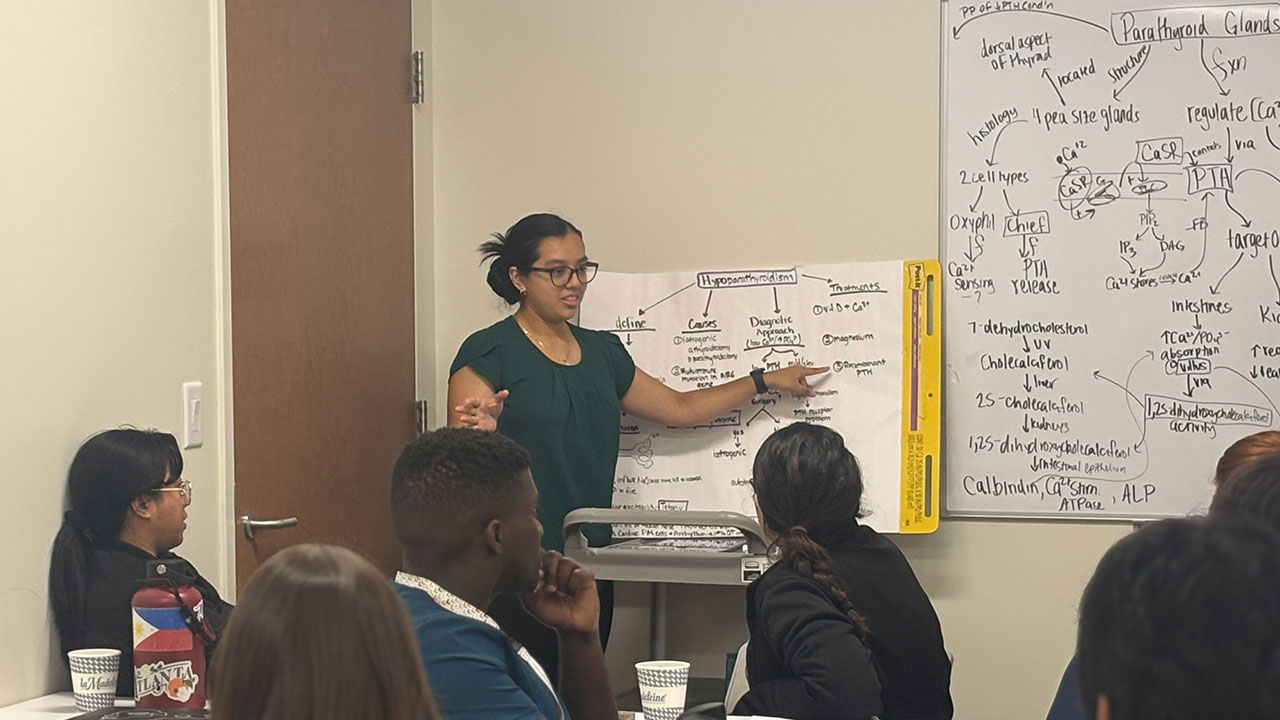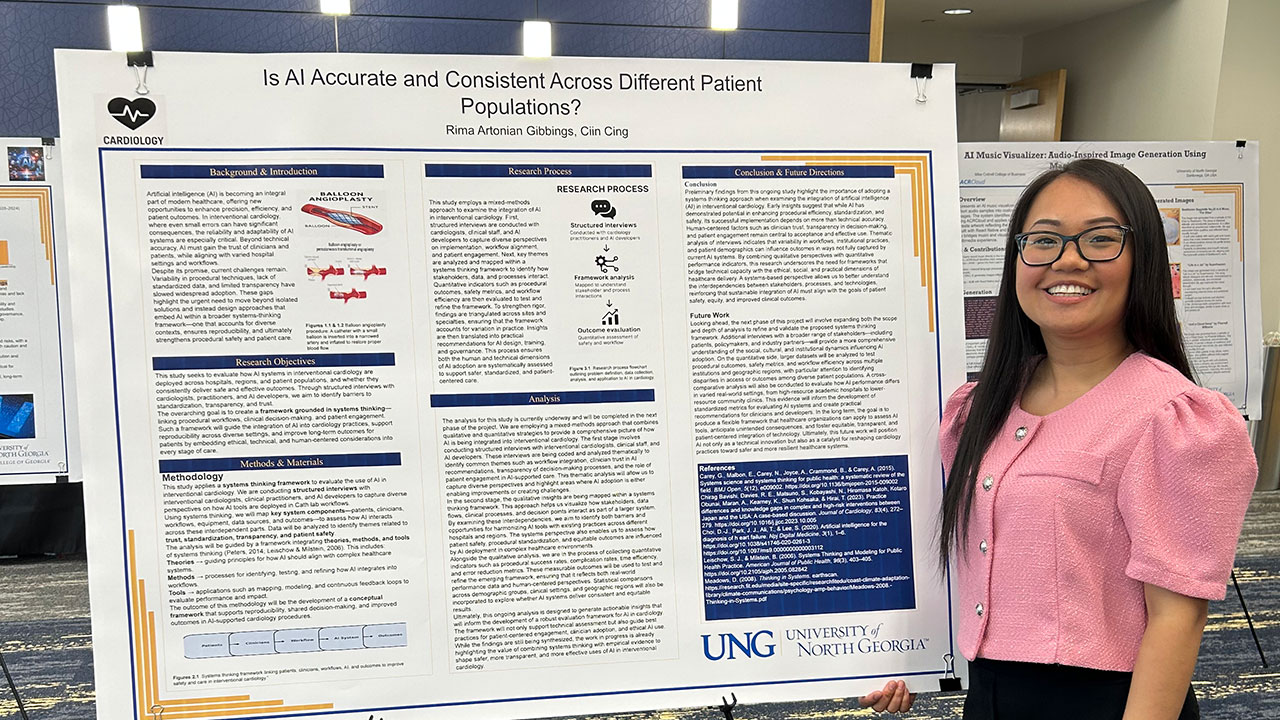Student takes part in Harvard Forest research

University of North Georgia (UNG) senior Casey Helton took part in the prestigious Harvard Forest Summer Research Program in Ecology from May 20-Aug. 2.
Helton, a Dawsonville, Georgia, resident, is pursuing a degree in environmental spatial analysis. They worked alongside two mentors and nearly two dozen students from across the country at Harvard Forest, which is about an hour and a half west of Harvard's main campus in Boston, Massachusetts.
The immersive research experience analyzed data sets going back to the 1990s depicting the timing of seasonality in leaves and how that has adjusted through the years. In addition to fieldwork, the group used modeling software to determine if seasonality changes will have a major impact on how much carbon is stored in the forest in the future.
Helton appreciated the variety of environmental science areas of study represented by students on the project and how they brought those skills together.
"Everybody there was so passionate about their work," Helton said. "It was a good opportunity to make long-lasting connections with people across the country."
Helton said faculty and staff in UNG's Lewis F. Rogers Institute for Environmental and Spatial Analysis (IESA) have been instrumental in their educational journey, including seeking out the summer program with Harvard University’s research laboratory and classroom.
"It's not something I would have imagined myself doing," Helton said. "How did I have the confidence and ambition to apply for it? The faculty and staff in the IESA program have been so encouraging about applying, sending out opportunities and writing recommendation letters."
Helton's favorite class thus far was remote sensing with Dr. Amber Ignatius, associate professor of geography and geospatial science. Helton's final project for the course involved exploring deforestation in Australia through satellite imagery.
Ignatius said the final projects in UNG's geospatial science courses allow students "to tackle a problem from beginning to end."
"When IESA students complete our required coursework, their research portfolios include a wealth of examples highlighting work they've tackled independently," Ignatius said.
In her estimation, Helton is one of the students who has taken the most advantage of such experiences.
Having sat in on a surveying course where half of the 25 participants were professional surveyors, Ignatius said Helton had, by far, the best accuracy.
"Casey Helton is an ideal collaborator and always pays attention to detail and precision. Casey's meticulous personality, genuine curiosity and collaborative spirit are perfect for executing complex research projects," Ignatius said. "I trust data that comes from Casey because I know it's going to be good."




